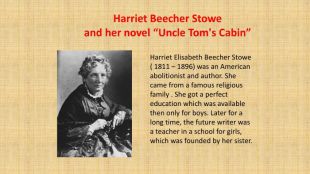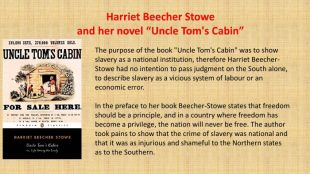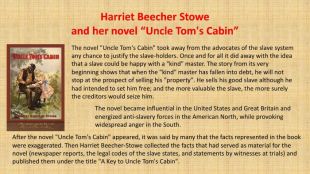Аболіціонізм в літературі. Гарріет Бічер-Стоу. (Презентація)
Про матеріал
Презентація знайомить з іменами авторів та громадських діячів, які виступали за заборону рабства. Також подається біографічний нарис Гарріет Бічер-Стоу. Є посилання на відео матеріали. Є також список питань для самоперевірки. Перегляд файлу
Зміст слайдів
pptx
Оцінка розробки

Безкоштовний сертифікат
про публікацію авторської розробки
про публікацію авторської розробки
Щоб отримати, додайте розробку
Додати розробку


























